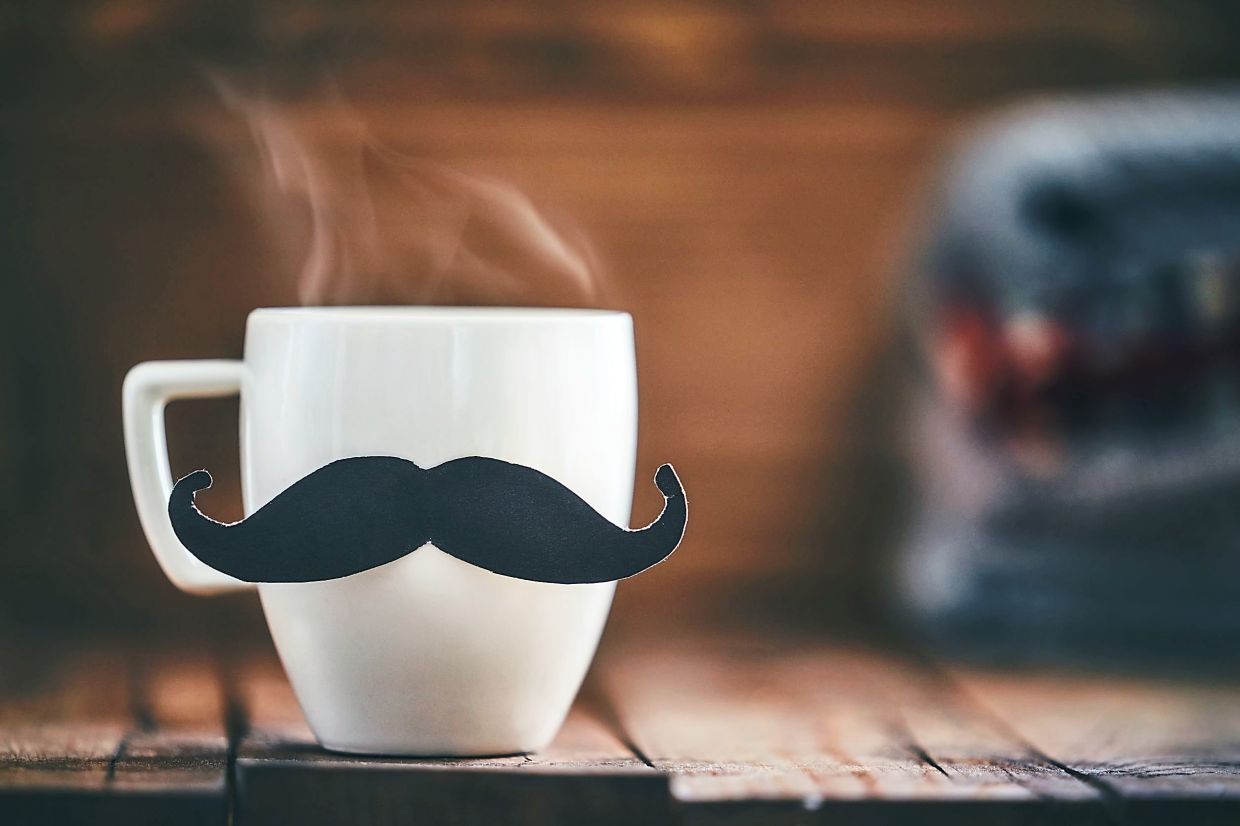
Main man: Dads, if you don’t already know, today is the day the world pays tribute to you. — 123rf.com
LET’S concede that Fathers Day is deemed less important than Mothers Day. By the way, dads, if you don’t already know, today is the day the world pays tribute to you.
If you are clueless, or no one around you remembers this special day, rest assured your children will be spared sulky faces or be reminded that they’ve missed an important day and made to stew with guilt.
Dads are generally less sensitive than mums. We are the ones you can share secrets with and be trusted with just about anything.
Most of us, being the cool dads we are, will merely shrug it off and dismiss it as just another ordinary day if we’re unceremoniously overlooked. It comes with the territory, after all.
It doesn’t help that most of us have no idea how Fathers Day should be celebrated. It’s the same with gifts – what do we ask for? The same as birthday presents? I wish there were guides for this. Perhaps we know we’ll never get the desired gifts, truth be told. Grown men are, in fact, kids at heart. Hope as hard as we may, but a Harley Davidson still won’t be gift-wrapped and parked in the porch, and neither will a real record player find pride of place in the hall. All right, I can understand the Harley, but not even a turntable? Hmmm….
So just thank your lucky stars if at least a dinner party is thrown in your honour, or you get the lame necktie or cuff links, which, in these WFH days, is really surplus to requirement.
Don’t be fooled with your false importance by the government’s directive that during the movement control order period, you’re the one allowed to leave the house to buy essential goods as the head of the family. Becoming the butt of jokes on social media is par for the course in this thankless role of fatherhood.
Growing up, I knew my dad was the man of the house. It was simply because he was the sole breadwinner, and we know money talks. Politicians say cash is king, after all.
That dynamic changes if both husband and wife are wage earners and, of course, when women are just as educated, and in many cases, even more so than their husbands.
Both have equal ownership, except that equal rights is a fallacy. It’s about the control of production and wealth, and even 19th century economist and philosopher Karl Marx predicted that.
If it’s not already common knowledge, women are smart. They have a way of “manoeuvring”, for the lack of a better word.
My dad, a Cantonese, is head of the family, but it was my mum’s dialect, Hokkien, which was spoken at home. As a kid, I didn’t ask why only Hokkien was spoken in the house. I just thought it was something ordinary.
So I grew up without being able to understand Cantonese properly, except for the handy expletives, of course.
My mum is Hokkien with Peranakan roots. She would cook up a storm, and we had curry almost every day. I barely recall eating Cantonese dishes at home from when I was young.
My dad was conditioned, as psychologists would say, and we were, too, but my mum astutely played the submissive role as a traditional wife.
In fact, she was the one calling the shots. Now she’s 89 and my dad 95 and she has finally prevailed to prove she is more than just the boss.
In my Bahasa Malaysia class in school, I was taught that a country’s capital is called ibu kota, and not bapa kota.
I asked my teacher, the late Cikgu Nordin, who came to school on his Vespa every day, why it wasn’t bapa kota.
His response was a painful reminder, and a permanent lesson that it has to be ibu, because as he pinched me, he yelled, “kepala bapak hang”, which translates to “your father’s head”, though it simply means “nonsense”. That somehow sounds much more impactful in Bahasa Malaysia.
And get used to it – it will always be Motherland, and not Fatherland.
Even Indonesians use the term “ibu pertiwi”, which is the Indonesian allegory of tanah air or, in direct translation, “land and water”.
Look, we don’t even use bapa jari but ibu jari for the thumb. So, again, men don’t even figure.
Dads have more negative connotations. I learned words like bapa ayam (pimps), and I was asked by the same Cikgu Nordin if I had watched P. Ramlee’s classic Anak-ku Sazali, which I of course had.
“Itu lah anak bapak,” he told the class, about the problem of being a spoilt, daddy’s favourite child.
Anak-ku Sazali, which means Sazali My Son, is a 1956 Malay movie about love between a man and a woman, dreams that can come true and a father’s overwhelming love for his son. The talented Tan Sri P. Ramlee plays the father’s character, Hassan, as well as that of the spoilt son, Sazali Hassan.
But more P. Ramlee movies, including Keluarga 69, had entered my life, too, and later, Cikgu Nordin taught me “bapa borek, anak rintik”, which is the equivalent of “like father, like son”.
Don’t despair if your family members don’t remember Fathers Day. Look, after Bapa Kemer-dekaan, Tunku Abdul Rahman, our memories begin to fade.
Let’s be honest, most of us can’t be certain if Tun Abdul Razak is known as Bapa Pembangunan (Father of Development), Tun Hussein Onn as Bapa Perpaduan (Father of Unity), Tun Dr Mahathir Mohamad as Bapa Pemodenan (Father of Modernisation), Tun Abdullah Ahmad Badawi as Bapa Pembangunan Modal Insan (Father of Human Capital) and Datuk Seri Najib Razak as Bapa Transformasi (Father of Transformation).
So if we can’t recall who’s who beyond the first Prime Minister, don’t blame anyone if Fathers Day is forgotten.





